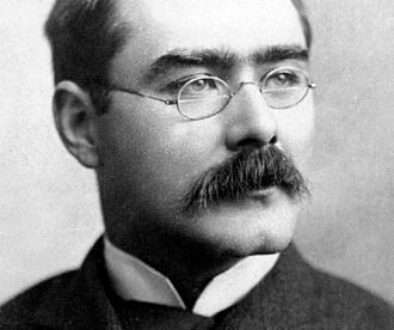Should Educational Institutions Also Teach About “What Makes Life Worth Living?”
Menanteau Serfontein – 19 November 2021 – Updated 6 December 2021
Education has evolved over the decades. From about 1850 until the 1950’s, most educational institutions, especially universities, in the USA, believed in something that professor Anthony T. Kronman of Yale Law School calls the “humanistic ideal”. This ideal held that the university’s purpose was teleological (learning about meaning and purpose) – to help students to answer the ultimate questions of life. To put it more bluntly, the main purpose of a school was to shape the students’ soul.
A century ago, Mary Woolley, president of Mount Hoylake University said “Character is the main object of education.” When J.F. Roxburgh, the headmaster of the Stowe High School in Vermont was asked in the 1920’s about the purpose of his institution, he said it was to turn out young men who were “acceptable at a dance, invaluable in a shipwreck.”
The British educator Sir Richard Livingstone said that one of the tasks of a teacher, in this educational model, was to hold up exemplars of moral virtue and what were the right things to do and not do – to make honourable things pleasant to children.
“To educate a person in the mind but not in morals is to educate a menace to society.”
― Theodore Roosevelt
Since then, of course, educational institutions have become more diverse and pluralistic. It was realised that there can be no single ideal for how to live. Most educational institutions gradually dropped the humanistic ideal and adopted the so-called “research ideal”. Bodies of knowledge such as biology, literature, mathematics and history, were divided up into specialities and smaller and smaller sub-specialities, and scholars started focusing almost exclusively on their specialities in order to advance the frontiers of knowledge.
A lot was discovered through this approach, especially in the hard sciences, but as Anthony Kronman argues, “this emphasis on specialization ‘draws our attention away from the whole of our lives’ and instead requires that we focus on some small aspect of our lives.”
The idea that one could explore the main forms of living, or ask big, vague questions like “what makes life worth living,” began to seem not only unrealistic, but irresponsible and pernicious (i.e. having a harmful effect, especially in a gradual or subtle way). Kronman writes “For it made the question of the meaning of life appear unprofessional – a question that no responsible teacher of the humanities could henceforth take seriously”. The “research ideal” offers educational institutions almost no opportunity to engage the student as a whole person, an entity that has longings and a hunger for meaning. It subtly says, “Ignore the soul behind the curtain”. (Read Article on the Website entitled “Meaning and Purpose in Life – Why?”)
Education today focuses almost exclusively on specialised bodies of knowledge (and skills). This is essential in order to equip students to eventually hold their own in the work situation.
It’s not that moral education was actively expelled from the educational institutions, but the whole enterprise just became awkward, and people more or less just let it drop. Everybody acknowledged that moral development is tremendously important, but it’s something you sort of do on your own.
Steven Pinker of Harvard, who is a cognitive psychologist, summarised the research ethos of the modern educational institutions as follows: “I have no idea how to get my students to build a self and become a soul. It isn’t taught in graduate school and the hundreds of faculty appointments and promotions I have participated in, we’ve never evaluated a candidate on how well he or she could accomplish it.”
In his Book, “The Second Mountain – The Quest for a Moral Life”, David Brooks says “People need to have a constructive philosophy of life, a set of criteria to determine what is more valuable than what.”
Brooks states that students are taught to engage in critical thinking, to doubt, distance, and take things apart, but they are given almost no instruction on how to attach to things, how to admire, to swear loyalty to, to copy and serve. The educational institutions, like the rest of society are “information rich and meaning poor”. They no longer expose students to “the mysteries of life and how to live well”.
The conclusion that one therefore comes to, is that these crucial issues are being ignored and are only pursued by those who think deeply and take personal responsibility to explore these bigger issues of life by themselves.
Brooks says that “Seeing well” does not come naturally – it is a skill that you learn from others who see reality clearly such as Leo Tolstoy, George Elliot and Jane Jacobs.
Brooks also says that all thinking is communication, and all the concepts in your head are inherited from a procession of thinkers stretching back thousands of years. We should learn to see beauty and things to love, separating what is true from what will get you to be liked. To do this, takes courage.
The philosopher Roger Scruten argues that emotional knowledge is knowing what to feel in different situations, so that you can be properly disgusted by injustice and properly reverend before an act of self-sacrifice, properly sympathetic in friendship and properly forbearing when wronged. These aspects of emotional knowledge/skill/EQ have to be acquired like any other. We are all born with certain basic emotions, but we have to be taught what it feels like to be in circumstances we haven’t experienced directly. (Read Article on the Website entitled “Emotional Intelligence (EQ)”))
There is a need to search for beauty, truth and wisdom so that when we age, we will desire more and more serious things of everlasting, eternal importance.
During his famous commencement address at Kenyon College, David Foster Wallace said “There is no such thing as not worshipping – everybody worships. The only choice is what to worship.” You must choose carefully what to worship and what provides meaning to your life, because whatever you worship, besides God, will eat you alive. Wallace went on to say that if you worship money and things, you will never have enough. Worship power and you will feel weak and afraid and you will need more power over others to keep fear at bay. Worship your intellect, being seen as smart and you will end up feeling stupid, a fraud, always on the verge of being found out.
Be watchful over what you love and desire, because you become what you desire. Know what to desire and what to worship. Train your heart to learn what are the better things to love and to have the best desires, i.e. – what is truly worth wanting.
I strongly believe that in addition to subject related knowledge and skills, our education institutions of today should also be teaching about timeless values, principles, virtues and character that have applied in various civilisations throughout history and that transcend cultures and faith communities. In addition, students should also be taught about “what makes life worth living”, i.e. how to find appropriate identity, meaning and purpose in life.
At the same time, I do realise that there could be risks in requiring educational institutions to fulfil this role. Many parents would be extremely sceptical about the nature of the moral virtue, values and principles that their children would be exposed to, unless they have a direct say in the content, particularly at primary and high school level. Until this becomes a reality, the only option available, is that parents and religious organisations will have to take this matter very seriously and to intentionally take the necessary action to ensure that their children are educated about meaning and purpose in life, moral virtues, values, principles and character.
Those who are studying at university, should be mature and adult enough to be exposed to teachings and options about moral virtues, as well as “what makes life worth living” without parents getting involved.
In the case of adults who did not have the benefit of learning about these crucial issues, they will have to take personal responsibility to embark on the never-ending journey of living a life of meaning that is underpinned by traditional timeless universal virtues, values and principles. (Read Article on the Website entitled “Taking Personal Responsibility”) as well as the one entitled “The Need to Adhere to Traditional Universal (Absolute) Values and Principles”)
A large part of the content of this Article was derived from the Book entitled “The Second Mountain – The Quest for a Moral Life”, authored by David Brooks






